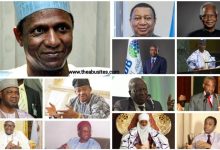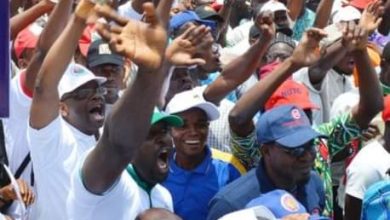ABU Legends: Celebrating the Top 20 Greatest ABU Alumni of All Time
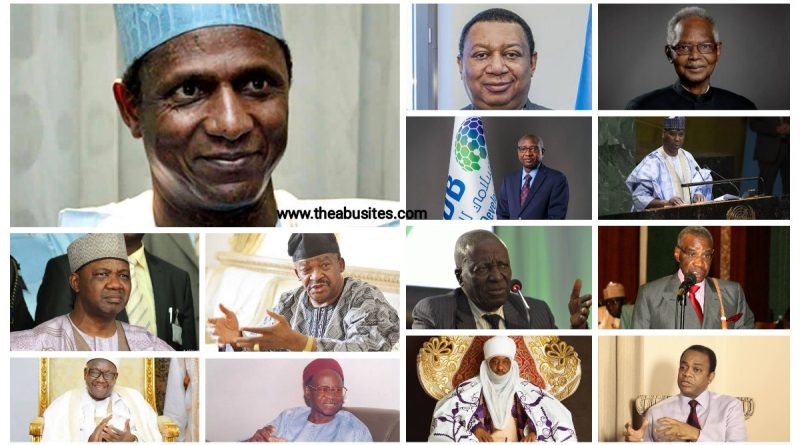
ABU, or Ahmadu Bello University, is one of the most prestigious universities in Nigeria and has a rich history of producing some of the brightest minds in the country. Many of these alumni have gone on to achieve great things in their respective fields, leaving a lasting impact on society.
In this post, we celebrate the top 20 greatest ABU alumni of all time. From politicians and writers to scientists and business leaders, these individuals have all excelled in their careers and made significant contributions to their communities. Join us as we take a look at their achievements and celebrate their legacy as ABU Legends.
Why celebrating ABU Legends is Important
Celebrating alumni is not just about nostalgia or reminiscing; it is a way to honour and recognize the achievements and contributions of individuals who have emerged from a particular institution and made a significant impact in their respective fields. These individuals, known as ABU Legends, have not only excelled in their careers but have also brought pride and prestige to their alma mater.
By celebrating the top 20 greatest ABU alumni of all time, we not only pay tribute to their accomplishments but also inspire current and future students to strive for greatness. It serves as a reminder that success is attainable and that the education and experiences gained from the institution can pave the way for extraordinary achievements.
Moreover, celebrating alumni fosters a sense of community and belonging. It brings together past and present students, faculty, and staff, creating a network of support and camaraderie. It allows for the sharing of stories, experiences, and lessons learned, creating a sense of unity and pride in the institution and its ability to produce exceptional individuals.
Recognizing the achievements of ABU Legends also helps raise the institution’s profile and reputation. It showcases the calibre of talent that has emerged from its halls and highlights the impact it has had on various industries and society as a whole. This recognition can attract prospective students, faculty, and even potential donors, who may be inspired to contribute to the institution’s ongoing success.
Criteria for selecting the top 20 greatest ABU alumni
Selecting the top 20 greatest ABU (Ahmadu Bello University) alumni is no small task. With a rich history and countless accomplished individuals, we must establish specific criteria to ensure a fair and comprehensive selection process.
First and foremost, we will consider the impact and influence that these alumni have had in their respective fields. This may include their contributions to academia, groundbreaking research, innovative discoveries, or significant advancements in their industries. Their achievements should be widely recognized and have made a lasting impact on their fields.
Secondly, we will take into account their professional success and recognition. Alumni who have reached the pinnacle of their careers received prestigious awards, or held prominent leadership positions will be given due consideration. Their accomplishments should serve as a testament to their exceptional abilities and dedication.
Furthermore, we will consider the extent of their involvement and contribution to the ABU community. This may include their active participation in alumni activities, philanthropic endeavours, mentorship of current students, or initiatives that have benefited ABU as a whole. Their commitment to giving back and making a positive impact on their alma mater will be taken into account.
Additionally, we will assess the level of influence these alumni have had beyond their professional lives. This could include their contributions to society, advocacy for important causes, or their role as inspirational figures in their communities. Their ability to inspire and make a difference beyond their sphere of influence will be a crucial factor in our selection process.
By carefully evaluating these criteria, we aim to create a definitive list that celebrates the top 20 greatest ABU alumni, showcasing their exceptional achievements, and inspiring current and future students to reach for greatness.
List of the top 20 greatest ABU Alumni
18. Isaac Fola-Alade – Renowned Architect

Chief Isaac Folayan Alade, FNIA, D.Sc, OFR (24 November 1933 – 19 June 2021) was a renowned Nigerian architect. He graduated from the Nigerian College of Arts & Sciences and Technology Zaria (now Ahmadu Bello University) as one of the first four pioneer Architecture graduates. Thereafter, he completed his postgraduate studies at the Architectural Association School of Tropical Studies, London in 1965, on a Commonwealth Scholarship.
The late Alade designed and supervised the construction of the National Stadium in Lagos; Tafawa Balewa Square (TBS); the federal secretariat, Lagos; Nigerian Institute of Policy and Strategic Studies building, Kuru, Plateau state; the office of the head of state and council of chambers, Dodan Barracks, as well as guest houses of heads of states and the federal government.
He has also designed the Ife University Teaching Hospital complex; the Nigerian Institute of Social and Economic Research, the University of Ibadan; the University of Maiduguri, and several other iconic buildings within and outside Nigeria.
17. Donald Duke – Former Cross River State Governor
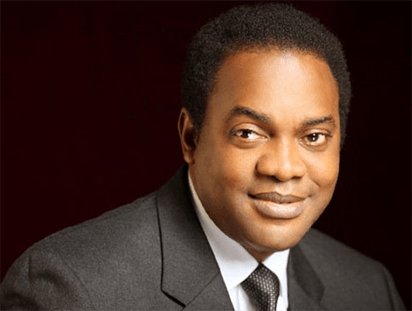
Donald Duke (born 30 September 1961 in Calabar) is a Nigerian politician. He was the Governor of Cross River State, Nigeria from 29 May 1999 to 29 May 2007 and the 2019 Nigeria Presidential candidate for Social Democratic Party, SDP.
He attended Corona School, Lagos and Federal Government College, Sokoto. He received his LLB degree in 1982 from Ahmadu Bello University, Zaria – Nigeria, his B.L. in 1983 from the Nigerian Law School, Lagos and an L.L.M. in Business Law and Admiralty in 1984 from the University of Pennsylvania.
Duke received praise for his contributions to the fields of agriculture, urban development, government, environment, information and communication, investment drive, and tourism and for making Calabar the cleanest city in Nigeria.
16. Dahiru Musdapher – Former Chief Justice of Nigeria

Dahiru Babura Musdapher GCON CFR (15 July 1942 – 22 January 2018) was a Nigerian jurist who served as the 12th Chief Justice of Nigeria from 2011 to 2012. From 1976 to 2003, Musdapher served as the Attorney-General and Commissioner of Justice of Kaduna State, the chief judge of the High Court of Kano State, and a Justice of the Nigerian Court of Appeal and Supreme Court.
In 1963, he was admitted into the Institute of Administration (now Ahmadu Bello University), Zaria where he got a Bar Part 1 in 1964 and proceeded to the University of London’s School of Oriental and African Studies from 1964 to 1967. After returning to Nigeria, he enrolled at the Nigerian Law School in 1967 and was called to the Nigerian Bar in 1968.
He was elevated to the position of a Justice of the Nigerian Court of Appeal in 1985. He was promoted to the Nigerian Supreme Court in 2003 and following the retirement of Aloysius Iyorgyer Katsina-Alu, the-then President Goodluck Jonathan appointed Musdapher as the 12th Chief Justice of Nigeria in 2011, a position he held until his retirement in 2012.
15. Idris Legbo Kutigi – Former Chief Justice of Nigeria

Idris Legbo Kutigi GCON (31 December 1939 – 21 October 2018) was a Nigerian lawyer and jurist. He was Attorney General and Commissioner for Justice in Niger State before becoming a high court judge. He joined the Supreme Court of Nigeria in 1992 and served as Chief Justice from 30 January 2007 to 30 December 2009.
He attended Government College (now known as Barewa College), and then Ahmadu Bello University (both in Zaria, Kaduna State). He left the country for England, where he studied at the School of Oriental and African Studies, University of London and Gibson and Weldon, before returning to attend the Nigerian Law School in Lagos, Lagos State. He was called to the bar in approximately 1964.
He was elevated to the Supreme Court in 1992 and was later appointed in 2002 by President Olusegun Obasanjo as the Chief Justice of Nigeria to succeed the outgoing Salihu Alfa Belgore. Belgore retired on 17 January 2002 and Kutigi succeeded him on 30 January 2002. He amended the 1979 Fundamental Human Enforcement Procedure Rules that later became the Fundamental Rights (Enforcement Procedure) Rules 2009.
14. Ahmed Makarfi – former Kaduna State Governor

Ahmed Mohammed Makarfi (born 8 August 1956) is a Nigerian politician who is a former chairman of the Peoples Democratic Party. He was governor of Kaduna State from 29 May 1999 to 29 May 2007 and was elected Senator for Kaduna North Senatorial District in April 2007. He is a member of the Peoples Democratic Party (PDP)
He attended the Federal Government College Enugu from 1973 to 1978. In 1979, Makarfi was admitted to the School of Basic Studies at Ahmadu Bello University in Zaria where he obtained a Bachelor of Science degree in Accounting.
He was a part-time Lecturer in the Department of Accounting from 1987 to 1993. During this time, he received a Master of Science degree in Accounting and Finance
13. Mohammed Sanusi Barkindo – Former Opec Secretary General
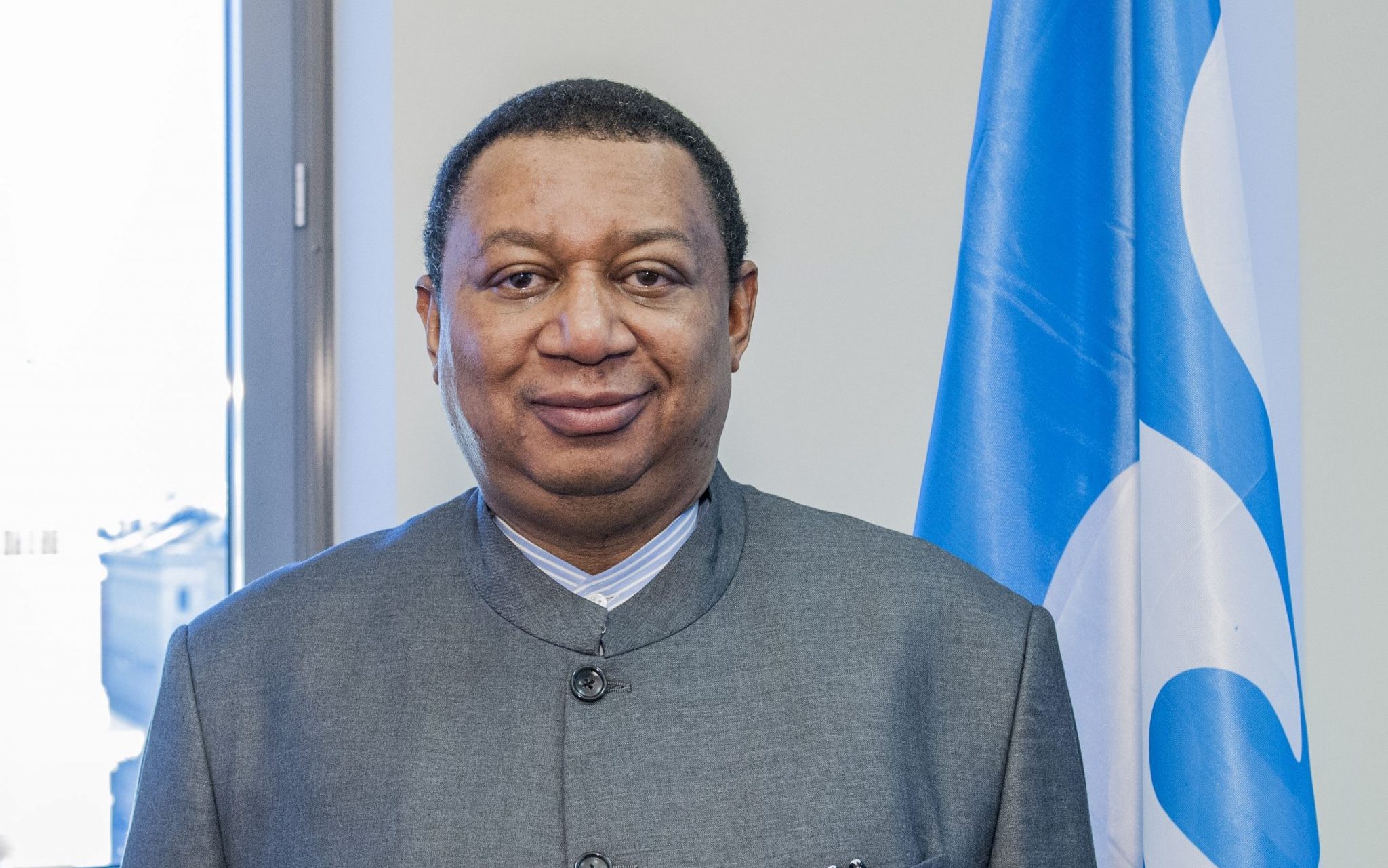
Mohammed Sanusi Barkindo pronunciation (20 April 1959 – 5 July 2022) was a Nigerian politician. From 1 August 2016 until his death, he was the Secretary General of the Organization of the Petroleum Exporting Countries. He helped to create the OPEC+ alliance between OPEC members and other oil-producing countries.
Barkindo previously served as Acting Secretary General in 2006. He led the Nigerian National Petroleum Corporation from 2009 to 2010 and headed Nigeria’s technical delegation to UN climate negotiations beginning in 1991.
Barkindo completed his bachelor’s degree in political science from Ahmadu Bello University (Zaria, Nigeria) in 1981 and his Master of Business Administration degree from Southeastern University (Washington, D.C.) in 1991. Before his MBA, he earned a postgraduate diploma in Petroleum Economics from Oxford University in 1988.
12. Nuhu Ribadu – Former Chairman, EFCC
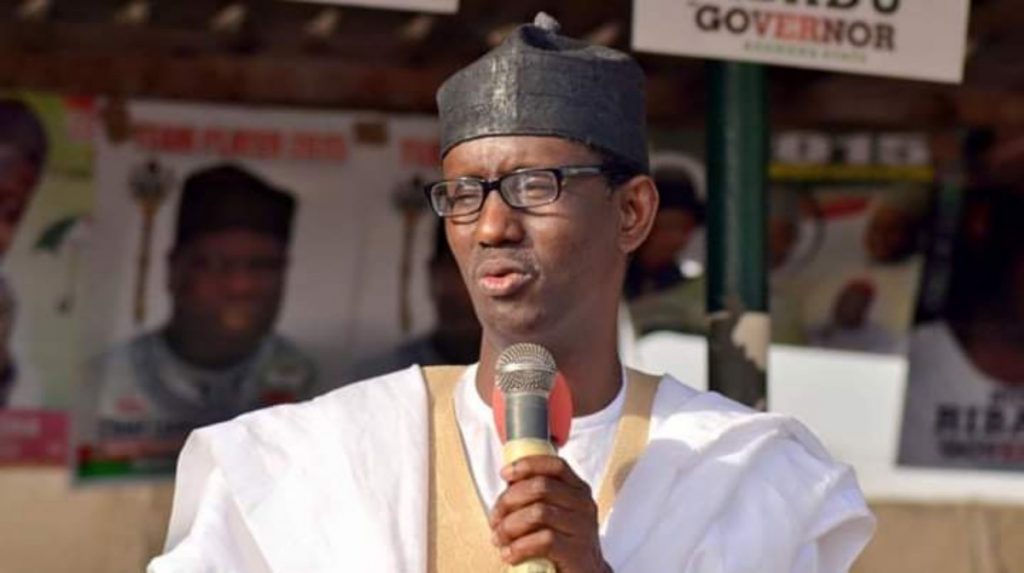
Nuhu Ribadu mni (born 21 November 1960) is a Nigerian politician and retired police officer who since 26 June 2023 has been serving as the National Security Adviser; after shortly serving as Special Adviser on Security to President Bola Tinubu.
Ribadu studied law at Ahmadu Bello University in Zaria, Kaduna State from 1980 until 1983, receiving a Bachelor of Laws degree. Following a year at the Nigerian Law School, he was called to the Bar in 1984. He also earned a Master of Laws degree from the same university.
Under Ribadu’s administration, the EFCC charged prominent bankers, former State governors, ministers, Senators, high-ranking political party members, commissioners of Police, and advance fee fraud (“419”) gang operators. The EFCC issued thousands of indictments and achieved about 270 convictions. One notable case was that of his boss, the then Inspector-General of the Nigerian Police Force, Tafa Balogun, who was convicted, jailed and made to return £150 million under a plea bargain.
During his duty Ribadu was offered bribes to pervert the course of justice, amongst these was a State governor who offered Ribadu $15 million and a house abroad. Ribadu escaped two assassination attempts in Nigeria before he left the country for the United Kingdom in early 2009.
11. Nasir Ahmad el-Rufai – Former Governor, Kaduna State
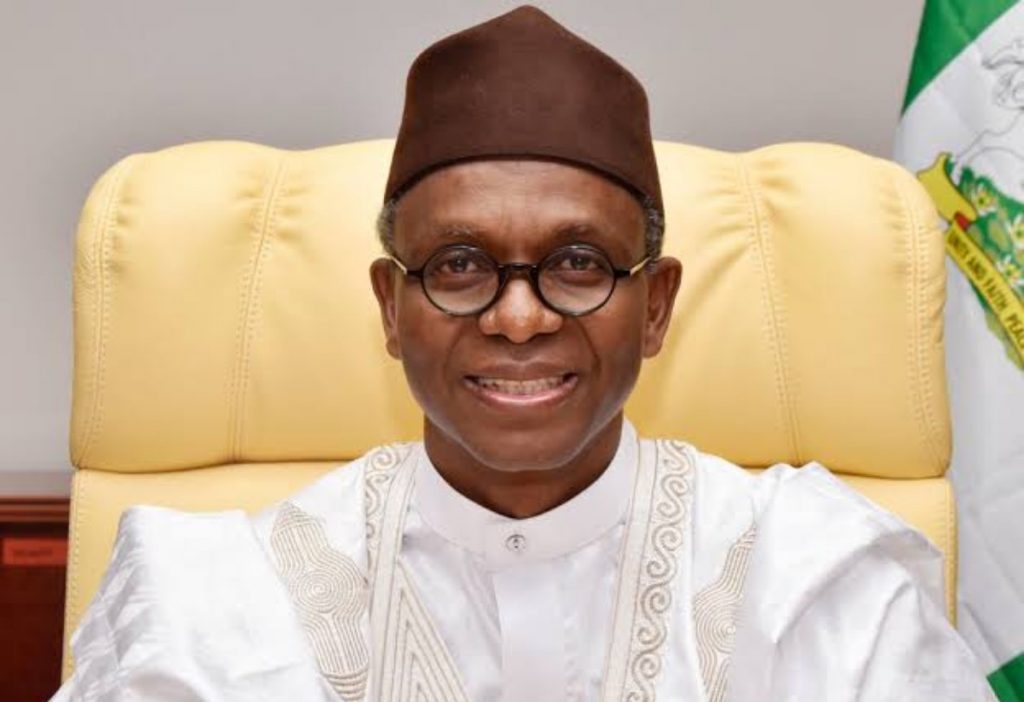
Nasir Ahmad El-Rufai CON (born 16 February 1960) is a Nigerian politician who served as governor of Kaduna State from 2015 to 2023. He served as minister of the Federal Capital Territory from 2003 to 2007. El-Rufai also served as director of the Bureau of Public Enterprises. He is a co-founding member of the ruling party All Progressives Congress.
El-Rufai was educated at Barewa College. As a junior at the college, President Umaru Yar’Adua was the house captain of his dormitory. In 1976, he graduated at the top of his class, winning the “Barewa Old Boys’ Association Academic Achievement” Trophy. El-Rufai attended Ahmadu Bello University in Zaria, where he received a bachelor’s degree in quantity surveying with first-class honours.
In 1984, he received a Master of Business Administration from Ahmadu Bello University. He has since attended several professional and post-graduate programs, including the Georgetown School of Foreign Service of Georgetown University in Washington, D.C., and programs on privatization and leadership.
10. Ghali Umar Na’Abba – former Speaker, House of Representatives
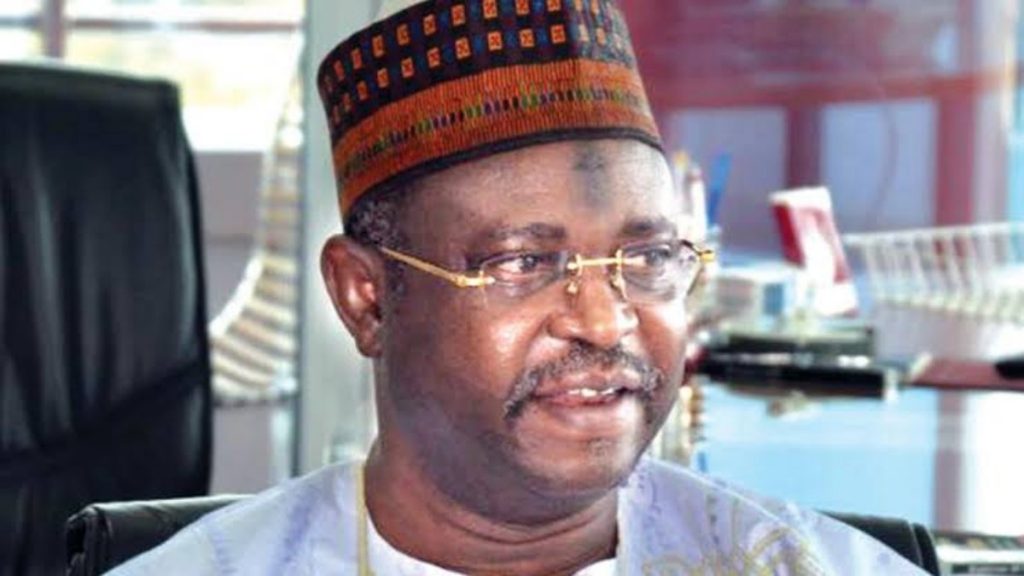
Ghali Umar Na’Abba (born 27 September 1958) is a Nigerian politician and 7th Speaker of the House of Representatives. In training, practice and expertise, Na’Abba is a political scientist and a policy architect. He obtained a bachelor’s degree in Political Science from Ahmadu Bello University, Zaria in 1979.
He completed a postgraduate programme on Leadership and Good Governance at the Kennedy School of Government, Harvard University in the United States in 2004. He served as Speaker of the House and led several international bodies in parliament in the wake of the millennium.
In recognition of his outstanding record in politics, pioneering parliamentary independence and development of the legislature and profound defence of democracy, rule of law and the constitution, Na’Abba has bagged a flood-gate of awards from the government, civil society groups, organized labour, students unions, private business organizations, political associations and even foreign government agencies and so on.
9. Tijjani Muhammad-Bande – Career Diplomat

Tijjani Muhammad-Bande GCON OFR (born 7 December 1957) is a Nigerian diplomat, academic and political scientist who was the president of the United Nations General Assembly 74th session from 17 September 2019 to 15 September 2020. He previously served as vice president of the 71st session from September 2016 to September 2017. He has served as Nigeria’s Permanent Representative to the United Nations since 2017.
He attended Ahmadu Bello University in Zaria where he received a bachelor’s degree in political science in 1979 before proceeding to Boston University, where he graduated with a Master of Arts in political science in 1981. Muhammad-Bande received a Ph.D. in political science from the University of Toronto in 1987.
From 2010 to 2016, he was the director general of the National Institute of Policy and Strategic Studies in Kuru, Nigeria, and was the vice chancellor of the Usmanu Danfodiyo University from 2004 to 2009. In January 2021, he was re-listed by President Buhari as the permanent representative to the United Nations, New York.
8. Mansur Mukhtar – former executive director of the World Bank

Mansur Mukhtar (born 21 September 1959) is a Nigerian economist who served as Minister of Finance in the cabinet of President Umaru Yar’Adua from 17 December 2008[1] to March 2010 when acting president Goodluck Jonathan dissolved his cabinet.
He attended King’s College, Lagos, and then Ahmadu Bello University, Zaria where he obtained a B.Sc. Economics in 1980. He earned a master’s degree in economics and politics of development from the University of Cambridge, United Kingdom in 1983, and a PhD in economics from the University of Sussex, Brighton in February 1988. Mukhtar was head of the Department of Economics and a lecturer at Bayero University, Kano, from 1988 to 1990.
Muhtar served as executive director of the World Bank from 2011 to 2014. In 2014 Muhtar moved to Jeddah, Saudi Arabia, where he became vice president of country operations of the Islamic Development Bank. In 2023, United Nations Secretary-General António Guterres appointed him as one of 22 members of the Scaling Up Nutrition (SUN) Movement’s lead group.
7. Sanusi Lamido Sanusi – former governor, Central Bank of Nigeria and Emir
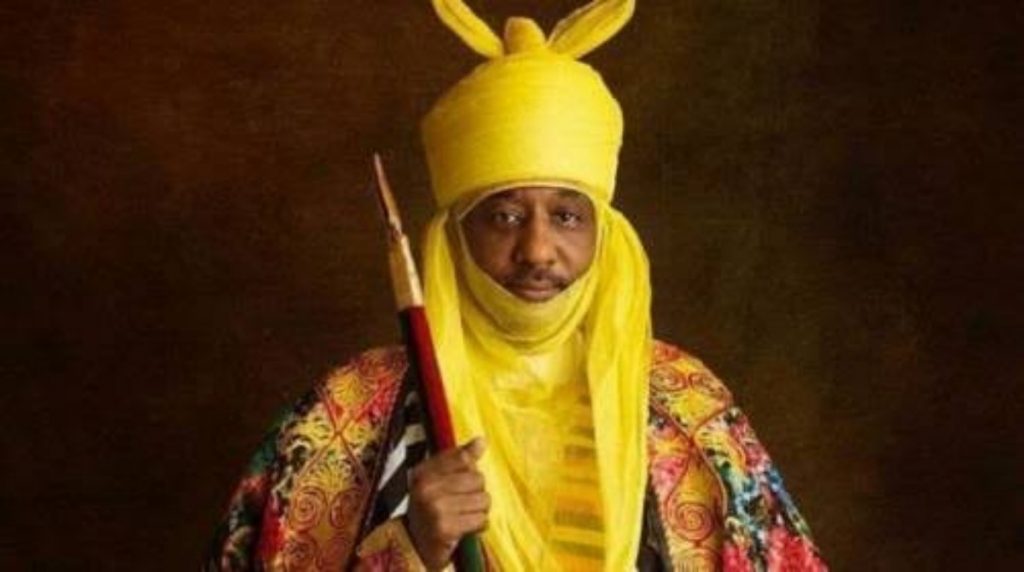
Sanusi Lamido Sanusi, CON (born 31 July 1961), known by the religious title Khalifa Sanusi II is a spiritual leader in the Tijanniyah Sufi order of Nigeria. He is a member of the Dabo dynasty and the 14th emir (Sarki) of the ancient city-state of Kano. He was born in Kano in 1961 into the royal family as the grandson of Muhammadu Sanusi I.
He succeeded his great-uncle Ado Bayero to the throne on 8 June 2014, and spent most of his reign advocating for cultural reform in Northern Nigeria, until his dethronement on 9 March 2020.
Before his accession, Sanusi was an Islamic intellectual, academic, political economist and banker. He served as the Governor of the Central Bank of Nigeria from 2009 to 2014, ushering in banking reforms until his suspension after he brought to light the $20 billion oil scandal.
6. Rilwanu Lukman – former Secretary General OPEC, former, Petroleum Minister

Rilwanu Lukman (26 August 1938 – 21 July 2014) was a Nigerian engineer who held several ministerial positions in the Nigerian Federal government before becoming Secretary General of OPEC (Organization of the Petroleum Exporting Countries) from 1 January 1995 to 31 December 2000.
He trained as a mining engineer at the College of Arts, Science, and Technology, Zaria (now Ahmadu Bello University), and then at Imperial College, London. He earned a higher degree in mining engineering from the University of Mining and Metallurgy in Leoben, Austria (1967–1968). He obtained a degree in Mineral Economics from McGill University, Montreal in 1978, and an honorary doctorate in Chemical Engineering from the University of Bologna in Italy.
From 1986 he served eight consecutive terms as OPEC president. Lukman was elected OPEC secretary general on 22 November 1994, succeeding Dr. Subroto of Indonesia, whose three-year term ended on 30 June 1994. He was re-elected to a second term in 1997, holding office until the end of 2000. He was a central figure in the agreement between Iran and Saudi Arabia to control oil prices early in 1999, followed by agreements to reduce production levels, which led to a surge in prices towards the end of the 1990s.
5. Sunday Awoniyi – Northern Yoruba leader, former chairman, ACF

Chief Sunday Bolorunduro Awoniyi, CON (April 30, 1932 – November 28, 2007) was a Northern Nigerian Yoruba politician and tribal aristocrat as the Aro of Mopa in Kogi State, formerly Kabba Province. Known as Little Sardauna, Awoniyi was a founder of the People’s Democratic Party from which he was expelled and then reinstated, Awoniyi was also chairman of the Arewa Consultative Forum (ACF); a pan-Northern Nigerian organisation.
He attended the Nigeria College of Arts, Science and Technology (now Ahmadu Bello University) from 1951 until 1956, University College (now the University of Ibadan) from 1956 to 1959, and the Imperial Defence College (now the Royal College of Defence Studies) from 1970 to 1971.
Awoniyi opposed the Third Term Agenda proposed by supporters of President Olusegun Obasanjo in favour of his re-election and was attacked at his Abuja house on March 12, 2006, during the debate. In April 2006, he wrote an open letter to Obasanjo, saying “I beg of you, for your good and our country’s good, make a simple announcement to say that you are not interested in a Third Term and that you plan to go back to Otta in 2007.”
4. Abubakar El-Kanemi – Shehu of Borno



